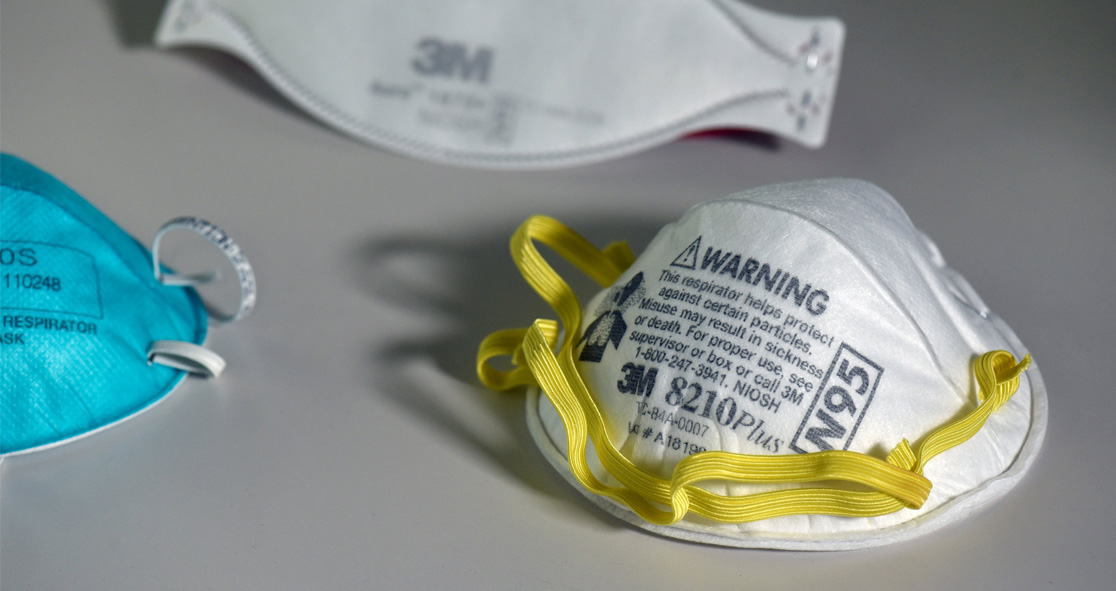New research, presented online at the meeting of American College of Emergency Physicians (ACEP) 2020, has found that nearly 50% of N95 masks fail to work when reused for more than 2 days.
Dr. Ronald Check of St. Luke’s University Hospital, Bethlehem, Pennsylvania, who presented the study, said, “N95 respirators used past day 2 had significant failure rates.”
The study author evaluated facemasks that had been reused by frontline health workers in a single-center trauma unit. The masks were checked for quality standards and fir fit.
Using the qualitative fit-test guidelines of the Occupational Safety and Health Administration, the researchers evaluated masks for 5 days.
For the first 58 masks, the investigators found that 9% of masks failed on day 1, 6% failed on day 2, and 50% failed on day 3. The masks failed further on day 4 and day 5.
The researchers continued evaluating a total of 115 masks and found that “3 of 28 masks failed on the first day, 2 of 29 failed on day 2, 9 of 26 failed on day 3, 5 of 11 failed on day 4, and 10 of 21 failed on day 5,” according to Medscape Medical News.
Dr. Check said, “This suggests that disposable N95 respirators should only be safely used for two shifts.”
Frontline health workers have been asked to reuse N95 masks, which are intended for single-use, due to a worldwide shortage of the masks.
“Soon after the first case was identified in late January in the United States, hospitals throughout this country were quickly faced with PPE [personal protective equipment] shortages,” Dr. Check noted.
Lack of PPE led the U.S. Centers for Disease Control and Prevention (CDC) to implement guidelines for extended use, “which meant donning for multiple patients without doffing,” Dr. Check explained.
The CDC also extended N95 masks use and reuse protocols such that health workers could use and reuse the same mask several times for an extended period.
However, the current study had a few limitations. Dr. Check said, “We utilized a qualitative fit-testing strategy instead of a quantitative one,” adding, “we did not control for the exact type of N95 respirator and the number of donnings and doffings.”
Dr. Check also explained that the study participants might have decontaminated the masks using different methods, which was not controlled.
Frontline health workers should receive PPE on a daily basis. “The rates of mask failure after multiple days of use are staggering,” Dr. Megan Ranney of Brown University, Providence, Rhode Island, told Medscape Medical News.
Dr. Ranney, the cofounder of GetUsPPE, said, “We must, as a specialty and a nation, continue to push for our hospitals to be able to obtain and distribute a new N95 to every frontline provider every day.”
GetUsPPE is a foundation that provides free PPE to frontline medical workers and under-resourced communities.
Although the current study was small, “it highlights the dangers of reusing N95s and reinforces the importance of having adequate supplies of PPE for emergency departments,” Dr. Ranney continued. “There should be hard-and-fast rules that we can’t use them for more than 1 to 2 days,” she added.























